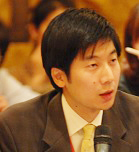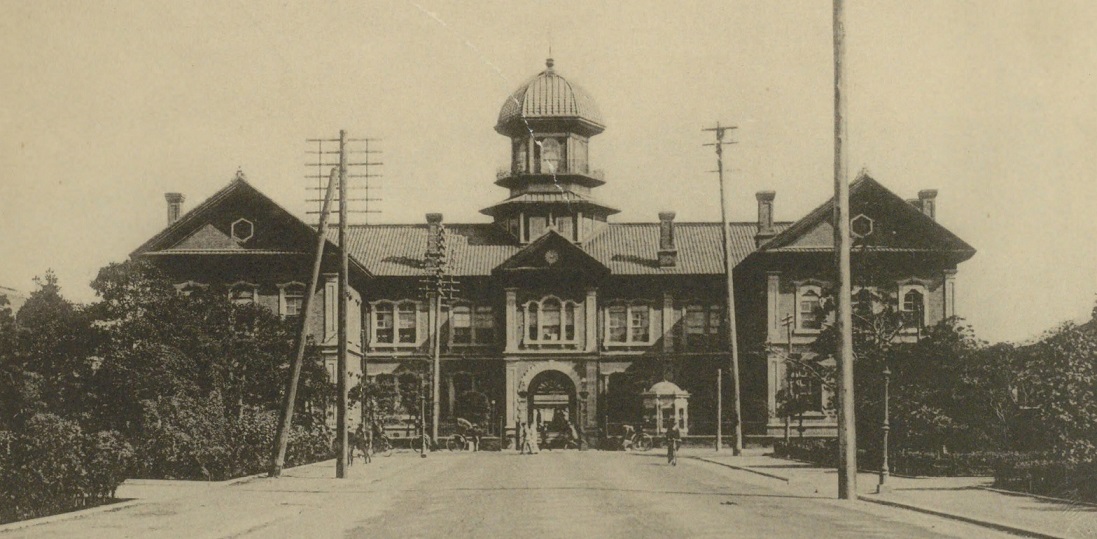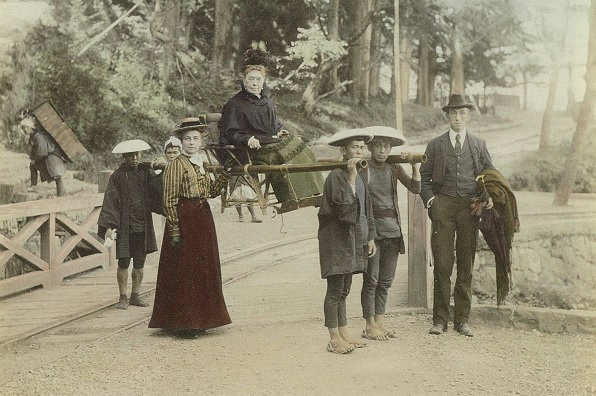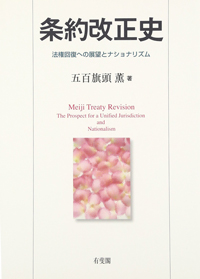An Approach from a Correlation of Public Opinion, Government, and Foreign Settlement Society

Kaoru Iokibe
Professor
Graduate Schools for Law and Politics
When he was a boy, Professor Iokibe would sing a parody of a popular song, substituting some of the lyrics with the name of the Prime Minister. As he grew up, he came to consider the significance of being born in an era in the final throes of heated conflict between the forces of conservatism and progressivism. These circumstances inspired Professor Iokibe to become a historian who could directly confront both the reality of the international society and the pain experienced by society. And what he chose to face was the history of the treaty revisions drawn up during the Meiji period. Professor Iokibe continues in his efforts to understand how Japanese society has overcome the problems associated with these unequal treaties.
I research Japanese political and diplomatic history. That being said, looking back to my early days, political matters used to be of little interest to me.
My first memory pertaining to politics was of Prime Minister Zenko Suzuki. There is a song written and composed by Ranbo Minami called “Yamaguchi-san-chi no Tsutomu-kun (The Yamaguchis’ Boy, Tsutomu).” I made a parody of this song, “Suzuki-san-chi no Sori-daijin (The Suzukis’ Prime Minister),” and used the next line of the song, “something’s off about him these days,” as-is. Now, I don’t remember exactly what was “off.” In the early 80s, Suzuki expressed a negative attitude regarding the significance of the Japan-US military alliance, which resulted in the resignation of the Foreign Minister at the time (Masayoshi Ito), as he held a different opinion. Perhaps those circumstances were part of it.

I began accumulating somewhat more organized memories regarding politics much later. At any rate, in the days when my earliest political memories had begun to form, the reformist camp still had some vigor. Moreover, during the Upper House election in the summer of my last year in junior high school, Japan was in the midst of a so-called “Madonna Boom” led by iconic female politician Takako Doi.
Writing papers is a hard task, and it makes one realize their limits. Through doing so, I came to consider what my strengths were, and ultimately settled on believing that I was born in a unique era. I was fortunate enough to have memories of living in the time when the conflict between the two great conservative and progressive political powers, though waning, still managed to possess a slight fervor. To make the best of my background, I aimed to become a historian who could identify the benefits Japan received from the Japan-US alliance, but at the same time confront the pain that Japanese society has suffered from the presence of US military bases and other similar issues.
This effort requires a sense of political balance. More than that, it requires a comprehensive perspective to view the entire situation, from global relations to domestic society, via domestic politics. Achieving this balanced perspective was by no means simple; I realized that I had to generate new strengths on my own in order to be up for the task, and not just wait for some philosophical vision from this unique era to manifest itself. And before I knew it, I found myself studying the history of the revised Meiji period treaties.
Writing papers is a hard task, and it makes one realize their limits. Through doing so, I came to consider what my strengths were, and ultimately settled on believing that I was born in a unique era. I was fortunate enough to have memories of living in the time when the conflict between the two great conservative and progressive political powers, though waning, still managed to possess a slight fervor. To make the best of my background, I aimed to become a historian who could identify the benefits Japan received from the Japan-US alliance, but at the same time confront the pain that Japanese society has suffered from the presence of US military bases and other similar issues.
This effort requires a sense of political balance. More than that, it requires a comprehensive perspective to view the entire situation, from global relations to domestic society, via domestic politics. Achieving this balanced perspective was by no means simple; I realized that I had to generate new strengths on my own in order to be up for the task, and not just wait for some philosophical vision from this unique era to manifest itself. And before I knew it, I found myself studying the history of the revised Meiji period treaties.

In the 1850s when the Edo period was ending, Japan concluded a series of treaties with western countries as it opened itself to the world. Negotiations to revise these treaties based on the recognition that they were unequal lasted from the 1870s to the 1890s. This was the most challenging diplomatic task for the Meiji government during the early and middle years of its existence. Many of you may have read about this in school textbooks, which describe the treaties as unequal because Japan allowed consular jurisdiction for foreign countries and lost its own tariff autonomy.
Deciding which parts of the treaties to revise and how to do so was indeed a significant diplomatic issue, but the history of the treaty revisions entails much more. For instance, there was domestic public opinion, which both encouraged and criticized the diplomatic efforts to revise the treaties. There were governments, which pursued their own goals based upon agreeing with or opposing the privileges that the foreigners obtained. There were also the societies of foreign settlements which had nurtured their own culture. If I could become the conductor, so to speak, of the orchestra comprised of these diverse parties that played the dense Meiji harmony, I could provide intellectual tools that would allow for a full comprehension of the post-war Japan-US alliance.
On the other hand, I have a problem. That is, the research has been taking too long, and I am still studying the Meiji period as I pass 40 years of age. The more difficult problem is that I sometimes find myself enjoying this and would like to continue my research into the distant future.
Question: Is your research useful?
Answer: People become wiser by recognizing changes in context. Thus, I believe that my research is useful.
(We have asked twelve professors who contributed articles to this issue to answer the above question in 60 words or fewer. Professor Iokibe's response appears here.)
Note: This article was originally printed in Tansei 33 (Japanese language only).
Deciding which parts of the treaties to revise and how to do so was indeed a significant diplomatic issue, but the history of the treaty revisions entails much more. For instance, there was domestic public opinion, which both encouraged and criticized the diplomatic efforts to revise the treaties. There were governments, which pursued their own goals based upon agreeing with or opposing the privileges that the foreigners obtained. There were also the societies of foreign settlements which had nurtured their own culture. If I could become the conductor, so to speak, of the orchestra comprised of these diverse parties that played the dense Meiji harmony, I could provide intellectual tools that would allow for a full comprehension of the post-war Japan-US alliance.
On the other hand, I have a problem. That is, the research has been taking too long, and I am still studying the Meiji period as I pass 40 years of age. The more difficult problem is that I sometimes find myself enjoying this and would like to continue my research into the distant future.
Question: Is your research useful?
Answer: People become wiser by recognizing changes in context. Thus, I believe that my research is useful.
(We have asked twelve professors who contributed articles to this issue to answer the above question in 60 words or fewer. Professor Iokibe's response appears here.)
Note: This article was originally printed in Tansei 33 (Japanese language only).







